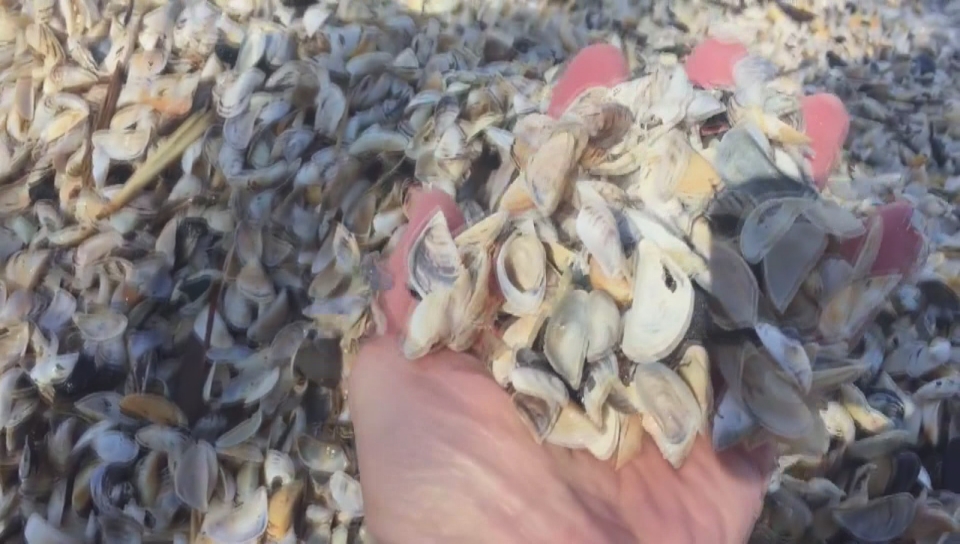The Canada Border Services Agency (CBSA) intercepted a boat with invasive mussels as it was being brought into Saskatchewan, officials with the Ministry of Environment said.

CBSA officers at the Regway border crossing identified the high-risk boat as it was being transported into the province from the U.S. by Canadian travellers at the end of March.
The boat was sealed for inspection at a later date as the travellers had to self-isolate, officials said.
The Ministry of Environment said the inspection took place during the week of May 18 and turned up invasive mussels in a storage compartment.
Officials believe the mussels were picked up by the boat’s anchor.
“This discovery really highlights the level of co-ordination it takes to ensure that Saskatchewan waters are protected from aquatic invasive species,” Environment Minister Dustin Duncan said Friday.
“Saskatchewan works closely with partners from other jurisdictions, including the CBSA, and it’s always gratifying when our co-operation is able to achieve a positive result like this one.”
The boat was decontaminated to ensure it no longer posed a threat to provincial waterways, the ministry said.
It is the first discovery of an aquatic invasive species caught at a boat inspection this year in Saskatchewan, officials said.
Officials said it highlights the need for all watercraft owners to follow clean, drain and dry protocols to insure invasive mussels such as zebra mussels and quagga mussels are not bought into the province.
Under the program, which applies to all watercraft brought into Saskatchewan and those being transported between waters in the province, owners must clean and inspect everything that comes into contact with water, including trailers and equipment.
They must also drain all on-board water and dry all watercraft and equipment, preferably for up to five days, before transporting.
The drain plug must also be removed while the watercraft is being transported.
In 2019, 3,100 watercraft were checked at inspection stations, with 1,147 deemed high-risk and decontamination carried out on 217 watercraft, the province reported earlier this year.
It is illegal to bring prohibited aquatic invasive species into Saskatchewan.





Comments